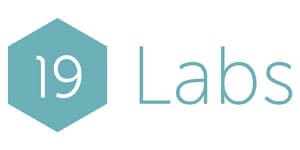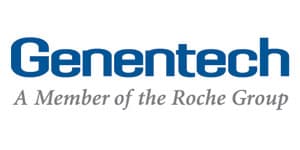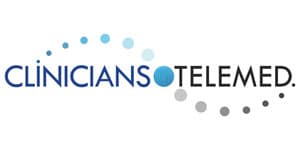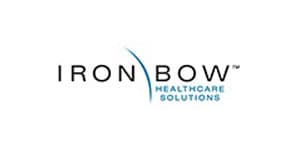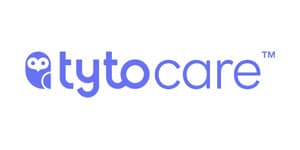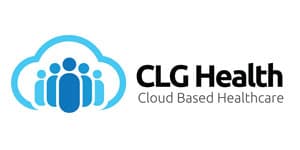What to Expect
Keynote Speakers
Adimika Arthur, PhD
Executive Director, Healthtech 4 Medicaid
Adimika will offer her insights on improving health equity and access to care for vulnerable populations especially those who are part of the Medicaid program. She will discuss the critical need for telehealth technology and innovation to reach Medicaid enrollees and other disadvantaged populations.
Stewart Ferguson, PhD
Chief Information Officer, Alaska Native Tribal Health Consortium
Stewart, a long-time international leader in telehealth and digital technology will offer his unique insights on changing telehealth challenges to opportunities in a post-pandemic world.
Panel Discussions
Panel #1: Engaging Patients to Use Telehealth for Their Care
Engaging patients with their health care is challenging, but it became even more so when the pandemic moved many health care providers to limit in-person visits and engage patients using telehealth. The panelists will discuss strategies used to encourage patients to utilize telehealth including preparing the patient for a telehealth visit; offering technical support; engaging the patient during the visit. What strategies have been most successful?
Panel #2: Keeping Providers Healthy and Committed to Virtual Care
Burnout among health care workers has been an issue. With the onset of the pandemic, the physical and mental toll of working on the front lines has grown dramatically and could have lasting implications for many years to come. Panelists will describe how they have used telehealth tools to assist providers with their self-care and to keep them safe and moving forward. What does their data show us about the success of these programs in the short term? What more will providers need to manage their recovery in the future?
Panel #3: Overcoming Telehealth Inequities
Telehealth has been heralded as a solution to health care disparities and access issues, but as the utilization of telehealth has skyrocketed during the Public Health Emergency, issues have emerged regarding inequities in telehealth care related to culture and language, social determinants of health, and various digital divides. The panel will discuss some of these inequities and access issues, and possible ways to overcome them.
Panel #4: Strategies for Maintaining Regulatory Flexibilities
The declaration of a Public Health Emergency for the COVID-19 pandemic has allowed the federal government and states to relax many of the restrictive rules surrounding the used of telehealth. Many would like to see some of the relaxations in the rules made permanent. The panel will describe strategies that are being developed to ensure that these rules are made permanent and the components needed for a successful strategy.
Other Highlights
Utah Education and Telehealth Network
Ray Timothy, PhD, Executive Director and CEO at Utah Education & Telehealth Network (UETN) will discuss how Utah has built a statewide fiber network that allows health care organizations, schools, technical colleges, universities and public libraries to connect and utilize resources. UETN has collaborated with stakeholders to create a 100 Gig backbone along with strategic access points that allow for Gig or 10 Gig connections to the network. The robust infrastructure provides for access to a suite of applications and services for both health care and educational stakeholders.
Virtual Telehealth Technology Showcase
The National Telehealth Technology Assessment Center (TTAC) provides a Telehealth Technology Showcase that gives conference attendees an opportunity to review and assess similar medical peripherals side-by-side in a vendor-neutral environment. Over the past year, TTAC adapted the Technology Showcase to a virtual format using a combination of pre-recorded video device demonstrations, and live virtual demonstrations of the technology. During the Virtual Showcase, TTAC staff discuss and demonstrate a range of current and up and coming telehealth technologies. This demonstration includes a range of medical peripheral devices, including innovative watch equipment that is new to the market or soon to be released.
Virtual Networking Opportunity
Meet with telehealth stakeholders from your state for an interactive discussion on the aspects of telehealth at the local level. Breakout rooms will be available for Alaska, Idaho, Montana, Oregon, Utah, Washington, Wyoming and Tribal communities.
- Alaska
- Idaho
- Montana
- Oregon
- Utah
- Washington
- Wyoming
- Northwest Regional Tribal Members
Conference Agenda
April 21st
(All times listed as PST)Opening and Welcome
Keynote
Adimika will offer her insights on improving health equity and access to care for vulnerable populations especially those who are part of the Medicaid program. She will discuss the critical need for telehealth technology and innovation to reach Medicaid enrollees and other disadvantaged populations.
Executive Director, HealthTech4Medicaid
Engaging Patients Using Telehealth
What is needed for providers using telehealth to engage patients in their care?
- Brian Wayling, MBA (Moderator)
Executive Director Telehealth Services, Intermountain Healthcare - Tammy Arndt
Director, Northwest TeleHealth - Kerry Palakanis, DNP, APRN
Executive Director Connect Care Operations, Intermountain Health - Jenny Parker, BS ANTHC
Telehealth Program Development Manager
Keeping Providers Healthy and Committed to Virtual Care
Strategies for using telehealth to care for providers
- Cara Towle, RN, MSN (Moderator)
Associate Director, Psychiatric Consultation & Telepsychiatry; Behavioral Health Institute, UW School of Medicine - Josh Cutler, MSW, LCSW
Sr. Clinical Mgr., Behavioral Health Concierge, Providence Health System Enterprise Telehealth and Swedish Medical Group - Krista Stadler, RN, BSN
Senior Director, Telehealth Services, St Luke’s Health System - Kristen Quinn, CMHC, CCLS
Psychsocial Program Director, Burn Center; Burn Camp Programs; University of Utah - Linda Sossenheimer, BSN, RN, RS, M Ed
Psych Clinical Educator, Outreach Nurse, Office of Network Development and Telehealth; University of Utah
Utah Education and Telehealth Network
Utah Education and Telehealth Network model
CEO and Executive Director of Utah Education and Telehealth Network
State Meeting Breakout Rooms
Network with stakeholders from your state in individual breakout rooms
April 22nd
(All times listed as PST)Overcoming Telehealth Inequities
Inequities, access issues and possible ways to over come them.
- Doris Barta, MHA, (Moderator)
Director, National Telehealth Technology Assessment Center (TTAC) - Garret Spargo, MA
Principal Investigator, National Telehealth Technology Assessment Center (TTAC) - Chris Fore, PhD., Clinical Psychology
Director, Indian Health Service Telebehavioral Health Center of Excellence - Suzinne Pak-Gorstein, M.D., PhD.
Assoc. Director, Dept. of Pediatrics, Adjunct Professor Dept of Global Health, University of Washington (UW)
Strategies for Maintaining Regulatory Flexibilities
Describe strategies that are being developed to assure rules are made permanent
- Rose Locklear, MPH (Moderator)
Field Services Manager, Oregon Office of Rural Health - Krista Drobac, M.P.P., Public Policy
Executive Director, Alliance for Connected Care; Partner, Sirona Strategies - Mei Kwong, JD Law
Executive Director, Center for Connected Health Policy - James Bush, M.D.
Medicaid Medical Director, Wyoming Department of Health
Keynote Presentation
Stewart, a long-time international leader in telehealth and digital technology will offer his unique insights on changing telehealth challenges to opportunities in a post-pandemic world.
Chief Information Officer, Alaska Native Tribal Health Consortium
Technology Showcase
Presenters:
- Doris Barta, MHA, (Moderator)
Director, National Telehealth Technology Assessment Center (TTAC) - Jordan Berg Technology Assessment Specialist, National Telehealth Technology Assessment Center (TTAC)
Topics:
- EMR Integration (how important is it, where does it bring value, where does it fail to deliver what is promised, cost).
- Hidden costs of technology needed for telemedicine.
- Providing services direct to patients.
Presenters

Adimika Arthur, PhD
Executive Director, HealthTech4Medicaid
Adimika Arthur is an experienced clinical epidemiologist and hospital/health system executive who loves to help people better understand health and healthcare through storytelling, connection and culture. She uniquely brings her population health, public hospital expertise and focus on improving health equity and access to quality care for vulnerable populations. She serves as the founding Executive Director for HealthTech for Medicaid (HT4M). HT4M is a collaborative convening of payers, providers, policymakers and innovative entrepreneurs collectively advocating for health equity and improvement of the Medicaid program on a national scale. This collective of advocates believe that with the strategic injection of technology and innovation into the Medicaid ecosystem and strives to be a bold, action-oriented, and inclusive network working to ensure critical new technology reaches Medicaid enrollees and other traditionally disadvantaged populations. HT4M sits at the intersection of where health equity and tech equity meet.
Adimika is a public health leader, hospital executive and humanitarian who holds numerous certificates and awards. She combines her love of mentoring, servant leadership and service by maintaining non-profit board roles and advocate for women's leadership. Affectionately known as "Madam Medicaid" on social media and is a co-host to a podcast called Bring A Friend, in one of the top relationship podcasts globally. She received her BS in Biochemistry from Clark Atlanta University in Atlanta, Georgia, her Masters Degree in Public Health (MPH) in Epidemiology and Health Systems from the University of Washington and attended Boston University School of Medicine.

Brian Wayling, MBA
Executive Director Telehealth Services, Intermountain Healthcare
Brian Wayling is an Executive Director with Intermountain Telehealth Services. He is responsible for developing system-wide telehealth delivery strategies to enable technology-based care delivery options for clinical teams and patients across Intermountain Healthcare and with regional partners. This integrated approach provides capabilities to increase access, reduce costs and improve quality for patients and caregivers.

Tammy Arndt
Director, Northwest TeleHealth
Tammy Arndt, Director of Northwest TeleHealth, a Division of Providence Health Care, servicing the Providence WA/MT region, and providing video conference technology and support to healthcare organizations across eastern WA, for healthcare administration, clinical education, and telemedicine services. With over 25 years’ experience in the healthcare industry, Tammy’s efforts have been focused on program development, distance education, and virtual service delivery. She has facilitated the successful launch of multiple telemedicine programs, extending specialty care to rural hospitals, clinics, and patient homes. Tammy is a current advisory board member of the NRTRC and 2018 recipient of the WA Rural Health Association Friend of Rural Health award.

Kerry Palakanis, DNP, APRN
Executive Director Connect Care Operations, Intermountain Health
Dr. Kerry Palakanis is a family nurse practitioner who has worked for over 30 years in family practice focusing on rural health and telemedicine. Dr. Palakanis has served as a national featured speaker for programs on issues related to rural health care delivery and telemedicine, has provided testimony to state and federal legislature on telemedicine bills, has received state and federal grants for telemedicine programs, developed & conducted remote patient monitoring grant programs; consulted in the development of national chronic disease management platforms and collaborates with various companies to develop/initiate innovative programs to provide connectivity and telehealth solutions to under served populations.
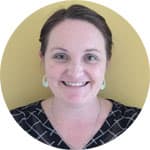
Jenny Parker, BS ANTHC
Telehealth Program Development Manager
Jenny Parker currently works as the Telehealth Program Development Manager at the Alaska Native Tribal Health Consortium. Jenny has worked in the medical field since she joined the Air Force as a medic in 2001. Throughout her career she has traveled the globe and has been stationed at some interesting and unique locations that have allowed her to become immersed in a variety of cultures. In her military career she worked in both the inpatient and outpatient settings to include: pediatrics, same day surgery,medical/surgical ward and family medicine.
After her military commitment, she transitioned to work as a federal contractor in the Intensive Care Unit for 5 years as a Critical Care Technician, her first telemedicine experience, monitoring 38 telemetry beds. She continued her education to help her better understand how the administrative side of a hospital functions by obtaining her Bachelor of Science in Health Care Administration from the University of Phoenix in 2014.
Jenny has partnered with several of our campus specialty clinics and statewide Tribal Health Organizations to help develop and implement telehealth into their daily clinical outpatient practices in order to increase access to care and enhance use video conferencing software to reach patients in remote areas of Alaska.
As the Telehealth Program Development Manager, she leads a team of telehealth assistants in enhancing communication, coordination and connection assistance for clinical health care providers to implement the use of modern technology and initiate or expand telemedicine programs across the state.

Cara Towle, RN, MSN
Associate Director, Psychiatric Consultation & Telepsychiatry; Behavioral Health Institute, UW School of Medicine
Cara Towle, MSN, RN, MA, has more than 20 years of experience in telehealth. In 1996, she established UCSF International Medical Services, offering telehealth programs reaching Asia, Europe, and the Middle East. From 2001 until 2015, she served as the founding Director for Telehealth Services at the University of Washington. In 2016, she moved to the UW Psychiatry and Behavioral Sciences to develop innovative telepsychiatry services. She is a founding Board member and former Board Chair for the Northwest Regional Telehealth Resource Center, as well as a founding board member of the Washington State Telehealth Collaborative.

Josh Cutler, MSW, LCSW
Sr. Clinical Mgr.,Behavioral Health Concierge, Providence Health System Enterprise Telehealth and Swedish Medical Group
Josh Cutler is a psychotherapist, licensed clinical social worker, and innovator in the mental health field. He leads a team of behavioral health specialists providing evidenced based interventions to providers and caregivers working in the hospitals and clinics of Providence, our nation’s 3rdlargest health system. He regularly facilitates workshops on wellness and burnout for healthcare providers. His experience spans transforming organizations in senior management roles, actively influencing public policy at a state and national level, and working in a range of clinical settings with individuals and families to achieve mental wellness.
His current focus is on utilizing cutting edge technology to increase access to evidenced based behavioral health treatments.

Krista Stadler, RN, BSN
Senior Director, Telehealth Services, St Luke’s Health System
Krista M. Stadler is a Registered Nurse who is passionate about improving community access to quality, cost effective care regardless of their geographic location. For the past 17 years she has supported large health systems by designing, implementing, and sustaining various telehealth initiatives and strategies.
She currently serves as Senior Director of Telehealth Services at St. Luke’s Health System in Boise, Idaho. In this role she collaborates with a variety of internal and external stakeholders to develop Telehealth solutions that solve some of healthcare’s most pressing challenges. She has direct oversight of new and existing Telehealth programs including Remote Patient Management, Transfer Center/Bed Placement Operations and St. Luke’s Virtual Care Center which opened in August of 2018.

Kristen Quinn, CMHC, CCLS
Psychsocial Program Director, Burn Center; Burn Camp Programs; University of Utah
Kristen Quinn has worked in burn care at the University of Utah Health Burn Center since 1993.Her roles have included Child Life Specialist, Clinical Mental Health Counselor, and Psychosocial Program Coordinator. Kristen was a key player in the creation of the psychosocial programing at the U Health Burn Camp Programs. She is now the director of the five camp programs as well as yearlong programing and a weekly support group for patients and families.
The University of Utah Health Burn Camp Programs utilize self-esteem building, teamwork, and peer interaction to create a positive environment for survivors to heal. Participants learn skills to move through recovery as their best selves. Kristen enjoys watching kids who attend the camp programs grow into adults who are contributing members of their communities.
She has done contract work with the Phoenix Society for Burn Survivors, including program development, peer support training and supervision. She has also worked with the International Association of Firefighters, teaching resiliency for fire fighters and families.
All of these programs transitioned to virtual programing in 2020.

Linda Sossenheimer, BSN, RN, RS, M Ed Psych
Clinical Educator, Outreach Nurse, Office of Network Development and Telehealth; University of Utah
With a professional career in healthcare spanning more than 25 years, Linda received her Bachelor of Science degree in Nutrition (Dietetics and Food Administration) from California Polytechnic State University in 1988. After working as a Clinical Dietitian supporting cardiac, organ transplant, nutrition support services, and outpatient nutrition counseling in Germany and the United States, Linda went back to the University of Maryland, Baltimore to earn her RN (BSN) degree in 1994. Later she worked in cardiac rehabilitation providing patients with nursing and nutrition cardiac education as they progressed back to health.
Linda and her family moved to Salt Lake City in 1998,where she worked as a Diabetes Educator at Intermountain Medical Center. Linda earned her Master’s degree in Educational Psychology at the University of Utah, while working as a high school counselor in an International Baccalaureate program. Linda has been working at the University of Utah in the Department of Network Development & Telehealth on the Education Team since January, 2020 creating and supporting the development of virtual education programs reaching healthcare professionals throughout the Mountain West Region (Montana, Idaho, Wyoming, Nevada and Utah).
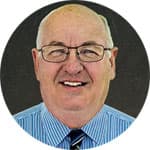
Ray Timothy, PhD
CEO and Executive Director of Utah Education and Telehealth Network
Dr. Timothy serves as the CEO/Executive Director of one of the premier Research and Education networks in the country, Utah Education and Telehealth Network (UETN). UETN provides network services, application services and support services to public education, higher education and libraries. It is a public/private partnership that connects every public school, charter school, college, applied technology college and university in Utah. UETN provides connectivity and educational resources to more than 824,000 students and more than 80,000 educators and staff in Utah public and higher education.
UETN is also responsible for broadband connectivity to 70+ healthcare sites throughout the State of Utah. Sites include rural hospitals, clinics, community health centers, public health departments, and the University of Utah dialysis centers, among others.
Dr. Timothy comes to the head of UETN after having served for over 30 years in various educational leadership positions. He has served as a classroom teacher, principal at the elementary and secondary levels, district superintendent, and deputy state superintendent. In those areas of responsibility he has had a continual focus on the use of technology to enhance the educational opportunities for students. He has served on multiple educational technology advisory groups for the Governor of Utah and other state leaders. He recognizes the unique role UETN plays in “Networking for Education and Healthcare” in Utah.

Doris Barta, MHA
Director, National Telehealth Technology Assessment Center (TTAC)
Doris T. Barta is the Director of the National Telehealth Technology Assessment Center (TTAC), one of two National Telehealth Resource Centers. TTAC provides in-depth objective assessments of telehealth technology and publishes the results of those assessments, as well as other pertinent information regarding telehealth technology on their website. TTAC also provides technology showcases during regional TRC conferences throughout the US, and during the COVID crisis, TTAC has provided the Showcases virtually.
Ms. Barta has worked in the telehealth field since 1992, serving in the capacity of a telehealth network director as well as in the role of fund development for telehealth. Ms. Barta also served as the Principal Investigator for the Northwest Telehealth Resource Center for 10 years, advance the development, implementation, and integration of telehealth through sharing information, leveraging resources and creating a synergistic telehealth community. The NRTRC represents seven western states (Alaska, Idaho, Oregon, Montana, Utah, Washington and Wyoming).
Through her wealth of experience in program planning and operations, Ms. Barta continues to assist healthcare organizations, networks, and providers implementing cost-effective telehealth programs serving rural and medically under served populations, with a special emphasis on program development through shared training and expertise.

Garret Spargo, MA
Principal Investigator, National Telehealth Technology Assessment Center (TTAC)
Garret Spargo is Aleut/Unangan, originally from the island community of Sand Point in the Aleutian Region of Alaska. He is the Audiovisual and Videoconferencing Manager at the Alaska Native Tribal Health Consortium (ANTHC), where he manages the statewide videoconferencing infrastructure for the Alaska tribal health system and evaluates new technologies for deployment at the Alaska Native Medical Center and its tribal health partners. Garret is the Principal Investigator for ANTHC’s Health Resources and Services Administration (HRSA)-funded National Telehealth Technology Assessment Resource Center (TTAC) and also serves as the technical lead on a HRSA-funded broadband assessment project that will measure broadband performance and accessibility in 25 counties across four states. He has filled numerous roles in telehealth at ANTHC since 2000, during which time he also received his BA from Seattle Pacific University (2005) and his MA in Anthropology from the University of Chicago (2013).

Chris Fore, PhD., Clinical Psychology
Director, Indian Health Service Telebehavioral Health Center of Excellence
Chris Fore, Ph.D. is currently the Director of the Indian Health Service (IHS) TeleBehavioral Health Center of Excellence (TBHCE). He is a member of the Choctaw Nation of Oklahoma. He received his doctorate in child clinical psychology from Oklahoma State University. In 2009, he established the IHS TeleBehavioral Health Center of Excellence. The mandate of the Center is to explore the feasibility of telebehavioral health within IHS (regionally and nationally), improve access to care, develop models of care, and to address sustainability.

Suzinne Pak-Gorstein, M.D., PhD.
Assoc. Director, Dept. of Pediatrics, Adjunct Professor Dept of Global Health, University of Washington (UW)
Suzinne Pak-Gorstein, MD, MPH, PhD, is an Associate Professor of Pediatrics and Adjunct Associate Professor of Global Health at the University of Washington School of Medicine. Her career has been fueled by a commitment to support health equity through the clinical care of vulnerable children as well as by working on public health efforts to empower marginalized communities locally and internationally.
In terms of telehealth equity work, Dr. Pak-Gorstein is involved with efforts to ensure equity in utilization of telehealth for patient care in the UWMC system, and co-chairs the American Academy of Pediatric’s (AAP) Telehealth Equity work group to develop evidence-base for equity in Telehealth dashboards, metrics, and interventions.
Clinically, Dr. Pak-Gorstein provides care for refugee children and other immigrant families at the UW Harborview Pediatric Clinic. She also attends on the pediatric trauma service at Harborview Medical Center. She serves as the pediatric advisor for the WA State Office of Refugee and Immigrant Assistance’s Refugee Health Promotions project, partnering with refugee resettlement agencies to support refugee and asylee’s seeking children with complex medical and social complexities. She has developed CDC national nutritional guidelines for refugee children, and developed curricula to train pediatric residents on refugee health care.
With regards to global and public health efforts, Dr. Pak-Gorstein co-directs the Global Health Residency Education and Advocacy for Child Health (REACH) program, training and mentoring pediatric medical residents carrying out community assessments in Kenya, and she serves as a course instructor and speaker for public and global health courses at the University of Washington. She has worked with governmental programs supporting child nutrition programs while living in Nepal and Indonesia, and supported monitoring and evaluation projects in Laos, Bangladesh, Philippines, and India.

Rose Locklear, MPH
Field Services Manager, Oregon Office of Rural Health
Based in the Oregon George, Rose Locklear joined the Oregon Office of Rural Health (ORH) in 2017 after completing two internships at ORH as part of her master’s degree in Public Health at Oregon State University. As a Program Manager she helps Oregon’s rural and frontier Critical Assess Hospitals increase access and provide support to providers through Telehealth and Project ECHO. Rose currently oversees ORH’s Annual Forum on Aging in Rural Oregon, and serves on state and regional Telehealth and Project ECHO governing boards. She holds masters’ degrees in Public Health and Kinesiology from Oregon State University.

Krista Drobac, M.P.P., Public Policy
Executive Director, Alliance for Connected Care; Partner, Sirona Strategies
Krista Drobacis a partner at Sirona Strategies. She has more than twenty years of experience in federal and state government, and in public affairs. She was previously the director of the Health Division at the National Governors Association’s Center for Best Practices, and a Senior Advisor at the Center for Medicare & Medicaid Services (CMS) during the Obama Administration. She also served as Deputy Director of the Illinois Department of Healthcare and Family Services and spent five years on Capitol Hill as a health advisor to Senate Minority Whip Dick Durbin and Senator Debbie Stabenow.
In addition to providing health care consulting services, Krista serves as the Executive Director of the Alliance for Connected Care, a 501(c)(6) organization dedicated to ensuring that all patients are able to realize the benefits of telehealth and remote monitoring. She also serves as Co-Chair of Aligning for Health, a coalition advancing social determinants of health policy at the federal level. Krista holds a BA from the University of Michigan and an MPP from the Harvard University Kennedy School of Government.

Mei Kwong, JD Law
Executive Director, Center for Connected Health Policy
Mei Wa Kwong, JD has over two decades of experience in state and federal policy work. She is the Executive Director for the Center for Connected Health Policy (CCHP), the federally designated National Telehealth Policy Resource Center. She has written numerous policy briefs, crafted state legislation and led several coalition efforts on a variety of issues and assisted states in their telehealth efforts, particularly in Medicaid and public health. Ms. Kwong is recognized as a national expert on telehealth policy. She helped create the model statute language that became the basis of the 2011 California state legislation that updated California telehealth law, published several articles on telehealth and telehealth policy in various peer reviewed journals and is the co-author of CCHP’s 50 State Medicaid Telehealth Reimbursement Survey. She has been consulted by state and federal lawmakers on telehealth legislation and policy and is sought out by the media to provide insight on telehealth issues. Ms. Kwong is a sought-after speaker who has spoken to a variety of audiences including health industry executives, physicians, journalists, attorneys and various national organizations. Prior to joining CCHP, Ms. Kwong was the Policy Analyst for Children’s Home Society of California where she worked on education and early childhood issues. She was recognized for her work by the Child Development Policy Institute Ms. Kwong is a graduate of the George Washington University Law School and has a BA in International Affairs.

James Bush, M.D.
Medicaid Medical Director, Wyoming Department of Health
Dr Bush joined the Wyoming Deptartment of Health in March 2007 as Staff Physician and Medicaid Medical Director. In this role he provides clinical oversight throughout the Dept. of Health. Currently he provides clinical input to the Department. He has a strong interest in developing high value care and quality improvement.
Prior to that he had a solo practice on Internal Medicine in Fort Collins, CO. Interested in Medical Policy and Organization, he has filled many roles including that of Chief of Staff at Poudre Valley Hospital, President of the Colorado Society of Internal Medicine, and President of the Fort Collins IPA.
In 2010 he was elected to be Governor of the Wyoming Chapter of the American College of Physicians(ACP)for 2012-2016and in 2018 was awarded Mastership of the ACP. He is Chairman of the Wyoming Telehealth Consortium and oversees the State of Wyoming’s Telehealth contract. Special interests include developing Wyoming’s Patient Centered Medical Home model, and Value Based Purchasing.

Stewart Ferguson, PhD
Chief Information Officer, Alaska Native Tribal Health Consortium
Stewart Ferguson Ph.D. is the CIO for the Alaska Native Tribal Health Consortium (ANTHC) located in Anchorage Alaska. Dr. Ferguson has primary responsibility for Health IT operations for the Alaska Native Medical Center, the largest Native hospital in the US. Dr. Ferguson was previously the Chief Technology Officer (CTO) for the Alaska Native Tribal Health Consortium (ANTHC) with primary responsibility for the expansion of a single patient record EHR throughout the Alaska Tribal Health System. As Director of Telehealth for ANTHC, he was also responsible for the design and development of the AFHCAN telehealth program.
Dr. Ferguson is a past President of the American Telemedicine Association, founded the National Telehealth Technology Assessment Center, and is a founding member and past-Chairman of the Board for the Northwest Regional Telehealth Resource Center providing support to telehealth systems in 8 states and the Pacific Islands. Dr. Ferguson served on the National Quality Forum’s Telehealth Measures Committee, Cerner’s CIO Council, and the Board of the Alaska eHealth Exchange.
Dr. Ferguson has over twenty-five years of progressive computer and research experience in academic, industrial, biomedical and business environments.
He holds M.S. and Ph.D. degrees both in Biomedical Engineering, and B.S. degrees in both Mathematics and Electrical Engineering.

Jordan Berg
Technology Assessment Specialist, National Telehealth Technology Assessment Center (TTAC)
Jordan Berg is the Technology Assessment Specialist at National Telehealth Technology Assessment Center (TTAC). Jordan has over thirteen years of hands on experience working with the Alaska Tribal Health System in both administrative and technical roles with ten of those years working in telemedicine. Jordan is passionate about working with people, helping them to understand, evaluate, and assimilate telemedicine technology.
Sponsors
Gold
Silver



